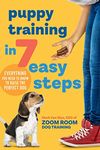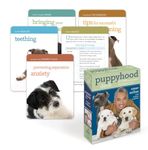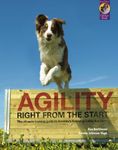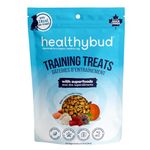10 bestDog Training Booksof February 2026
112M consumers helped this year.
61% off
1

Cesar Milan 3 Books Collection Set (How to Raise the Perfect Dog, Cesar's Way: Everyday Guide to Understanding & Correcting Common Dog Problems & Be the Pack Leader)
Hodder Paperbacks

9.9
13% off
2
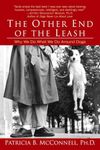
The Other End of the Leash: Why We Do What We Do Around Dogs
Ballantine Books

9.8
12% off
3

How to Raise the Perfect Dog: Through Puppyhood and Beyond
Three Rivers Press

9.7
26% off
4

Don't Shoot the Dog: The Art of Teaching and Training
Simon & Schuster

9.5
5

Training the Best Dog Ever: A 5-Week Program Using the Power of Positive Reinforcement
Workman

9.3
Other
6

Cesar's Rules: Your Way to Train a Well-Behaved Dog
Three Rivers Press

9.0
7

Cesar Millan's Short Guide to a Happy Dog: 98 Essential Tips and Techniques
NATIONAL GEOGRAPHIC

8.7
6% off
8
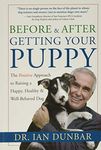
Before & After Getting Your Puppy
New World Library

8.5
9
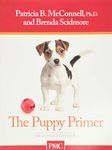
Puppy Primer
McConnell Publishing Limited

8.2
10
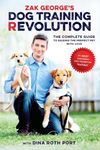
Zak George's Dog Training Revolution: The Complete Guide to Raising the Perfect Pet with Love
Ten Speed Press

7.9
A Guide to Selecting the Best Dog Training Books
Choosing the right dog-training book can make a big difference in how effectively you train your dog and how enjoyable the process is for both of you. The best book for you will depend on your dog's age, breed, temperament, and your own experience level. It's important to look for books that match your training philosophy and are written in a way that's easy for you to understand and apply. Always consider your specific goals, whether it's basic obedience, solving behavioral issues, or advanced tricks, and pick a book that addresses those needs.
Training Approach
The training approach refers to the philosophy or method the book uses to teach your dog. Common approaches include positive reinforcement, clicker training, or more traditional methods. This is important because some methods may align better with your values and your dog's personality. For example, positive reinforcement focuses on rewarding good behavior, which is gentle and effective for most dogs. If you prefer a kind, reward-based method, look for books that emphasize positive reinforcement. If you want a more structured or traditional approach, seek out books that explain those techniques. Think about your comfort level and your dog's temperament when choosing a training approach.
Level of Detail
Level of detail describes how in-depth the book goes into training concepts and instructions. Some books are beginner-friendly, offering step-by-step guides and clear explanations, while others are more advanced, assuming you already know the basics. If you're new to dog training, choose a book that starts with the fundamentals and explains things clearly. If you already have experience, you might prefer a book that dives deeper into specific issues or advanced tricks. Consider your own knowledge and what you want to achieve when deciding how much detail you need.
Target Audience
The target audience is who the book is written for, such as new dog owners, experienced trainers, or people dealing with specific behavioral problems. This matters because a book aimed at first-time owners will be more basic and supportive, while one for experienced trainers might use more technical language and advanced techniques. Make sure the book matches your experience level and addresses your particular needs, whether that's raising a puppy, training a rescue dog, or correcting certain behaviors.
Coverage of Behavioral Issues
Coverage of behavioral issues refers to how well the book addresses common problems like barking, chewing, aggression, or separation anxiety. This is important if your dog has specific challenges you want to work on. Some books focus mainly on obedience commands, while others dedicate sections to solving behavioral problems. If you have a particular issue in mind, look for a book that covers it in detail. If your dog is generally well-behaved, a general training book may be enough.
Clarity and Usability
Clarity and usability describe how easy the book is to read and follow. A good training book should have clear instructions, helpful illustrations or photos, and practical tips you can apply right away. This is important because even the best advice won't help if it's hard to understand or put into practice. If you prefer visual learning, look for books with lots of pictures or diagrams. If you like step-by-step instructions, check for books that break down each command or exercise. Think about your learning style and choose a book that matches it.
Best Reviews Guide Newsletter
Get exclusive articles, recommendations, shopping tips, and sales alerts
Sign up for our newsletter to receive weekly recommendations about seasonal and trendy products
Thank you for subscribing!
By submitting your email address you agree to our Terms and Conditions and Privacy Policy
